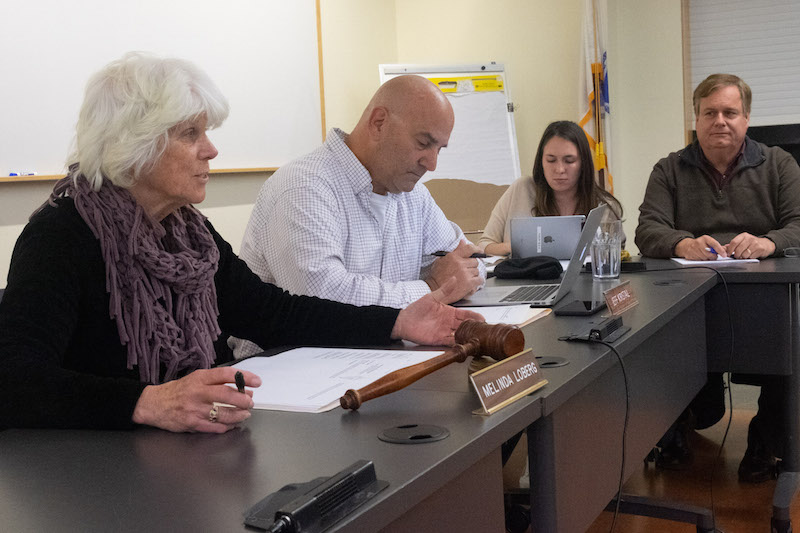After a public outcry that the Tisbury annual town meeting warrant would not include a student-written bylaw banning the sale of single-use plastic bottles, Tisbury’s board of selectmen has agreed to let voters decide on the question.
It took less than 15 minutes at a meeting Friday afternoon for selectmen Melinda Loberg and Jeff Kristal to reverse the board’s decision, announced Monday, and decide to put the proposed bylaw from Plastic Free MV on the warrant. On Monday, selectmen had agreed on a different warrant article that called for the town to develop an action plan and a bylaw to manage plastic reduction in Tisbury.
About 30 people attended the Friday afternoon meeting at the Tisbury Emergency Services Facility on Spring street, including schoolchildren in matching Plastic Free MV sweatshirts.
Ms. Loberg noted that the Plastic Free MV group has attended a series of public meetings in different down-Island towns during their campaign for the bylaw, which passed in Aquinnah, Chilmark and West Tisbury last year.
“What I’m seeing is incredible interest and persistence in seeing this project through, and I give you a lot of credit for mobilizing the Island and getting people to pay attention to this issue,” she said.
“We all agree on the problem of plastics in our environment and the damage they do, and I appreciate the fact that we are being led to solutions by the upcoming generation of leaders,” Ms. Loberg added.
Because the town meeting warrant was already overdue at the printers, Ms. Loberg and Mr. Kristal kept their remarks brief and moved speedily to vote unanimously in favor of restoring the bylaw, article 14, on the special town meeting warrant for March 31. Selectmen James Rogers was absent.
“I would like to thank you for reconsidering,” student organizer Finn Robinson, 12, told the selectmen as spectators applauded the vote.
The Plastic Free MV bylaw prohibits the sale of water and soft drinks in plastic bottles holding less than 34 ounces, with fines of up to $100 per violation.
The warrant article includes a suspension clause in case the board of health, which is charged with enforcing the bylaw, finds it to be unreasonably costly.








Comments (9)
Comments
Comment policy »